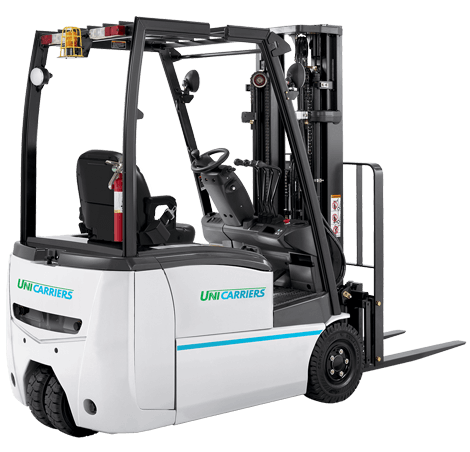
The Advantages of Electric Forklifts: A Smarter Choice for Modern Operations
Electric forklifts are rapidly becoming the preferred choice in many industries, offering significant advantages over internal combustion (IC) forklifts. From environmental impact to safety, maintenance, and even performance, electric forklifts are redefining efficiency in material handling.
Why Go Electric?
1. Environmental Benefits
Electric forklifts produce zero emissions, making them a cleaner and more sustainable option. In contrast, IC forklifts emit harmful pollutants such as carbon monoxide and particulates, limiting their use to outdoor or well-ventilated areas. Electric forklifts not only help companies meet environmental standards but also contribute to a healthier workplace for employees.
2. Versatility and Performance
Electric forklifts are highly maneuverable and feature sealed internal components, making them suitable for both indoor and outdoor applications. They excel in confined spaces where precision and control are critical.
3. Safety Advantages
IC engines generate noise and vibration, which can lead to operator fatigue, potential hearing loss, and workplace accidents. Electric forklifts, on the other hand, operate silently and without vibration, fostering a calmer, safer, and more productive environment.
4. Lower Maintenance
Electric forklifts typically require less maintenance than their IC counterparts. With fewer moving parts and no need for engine oil, filters, or spark plugs, the upkeep is simpler and more cost-effective.
When Electric Forklifts Might Not Be the Best Fit
Despite their many benefits, electric forklifts aren’t perfect for every situation. Their reliance on batteries introduces some logistical challenges:
1. Charging Requirements
Electric forklifts need regular charging, which necessitates a designated charging station and sufficient space. While advancements in lithium-ion battery technology have reduced charging times, improper charging schedules could still lead to downtime, particularly during long shifts.
In comparison, an IC forklift operator can swap out a propane tank in just a few minutes and resume work. However, with proper planning—such as implementing opportunity charging during pre-scheduled breaks—electric forklift downtime can be minimized or even eliminated.
Evaluating Costs: Upfront vs. Long-Term
Before choosing between IC and electric forklifts, it’s essential to evaluate both the initial investment and the long-term operating costs. While electric forklifts may have a higher upfront cost, their lower maintenance expenses and reduced energy consumption often result in a lower total cost of ownership (TCO) over time.
The decision ultimately depends on the specific needs of your site and applications. Consider factors such as operating environment, workload, and long-term operational goals when making your choice.
Ready to Make the Switch?
If you’re interested in exploring how electric forklifts can optimize your operations, we’re here to help. Contact us today to discuss your needs and discover how our innovative solutions can drive efficiency and sustainability in your business.
